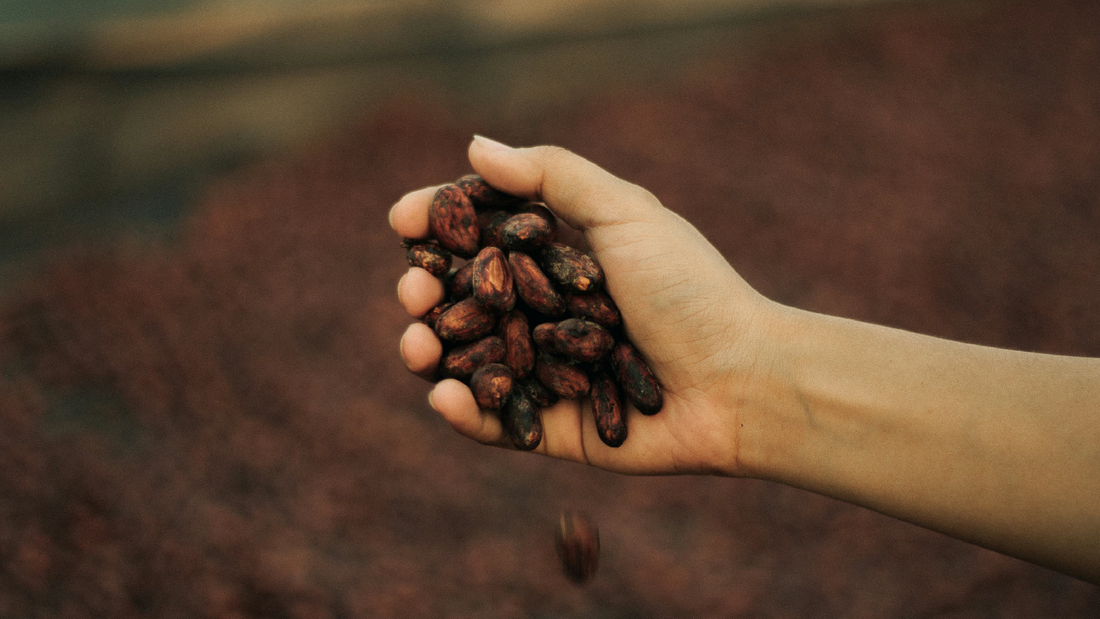MyChocolate Founder, Hannah Saxton, appeared on ITV news recently, talking about the effect of rising cocoa prices due to a myriad of factors causing shortages. While these issues are shaking the chocolate industry from the farmers all the way to the consumers, the underlying causes are more complex than simple supply and demand. Issues like climate change, ethical labour practices, and market control play significant roles in shaping the current crisis.
Climate Change and Disease Outbreaks
Cocoa yields in major West African producers—Ivory Coast and Ghana—have plummeted due to climate change-induced factors like extreme heat, shifting rainfall patterns, and diseases such as the Cocoa Swollen Shoot Virus (CSSV). These issues have drastically affected production, resulting in cocoa futures reaching over $10,000 per metric ton in early 2024—a record high that has disrupted the global market.
Many farmers have resorted to abandoning their crops due to high costs of pest management and disease control, leading to even further shortages. The reduced supply is compounded by issues like soil degradation and deforestation, which limit the land's productivity and sustainability. As one source notes, environmental stressors exacerbate an already fragile supply chain, making recovery difficult even if market conditions improve.
The Ethical Paradox: High Prices Don’t Always Benefit Farmers
Despite skyrocketing cocoa prices, the farmers who produce the bulk of the world's cocoa often see little to no benefit. In West Africa, farmers typically receive only 40-50% of global market prices due to government price controls, a legacy of colonial market structures. In contrast, South American farmers can receive up to 90% of market prices because of more liberalised markets and access to capital.
Moreover, the increase in prices doesn't necessarily cover rising costs of production. Farmers who invest in mitigating climate impacts or battling diseases often find that higher prices merely offset their expenses, not increase their profits. For example, Ivory Coast's cocoa board estimates that farmers need at least $3,000 per ton to achieve a living wage—a far cry from the premiums they currently receive. Compounding this issue, many fair-trade initiatives fall short of truly supporting farmers due to certification costs and low premiums.

The Role of Market Dynamics and Corporate Practices
Large corporations often hedge their supply by purchasing cocoa in futures contracts, meaning the recent price hikes don't immediately translate to higher costs for these businesses. However, long-term shortages will force these companies to reassess their pricing structures. Unfortunately, some brands prioritise cost-cutting over ethical practices, with allegations of child labor and poor wages still prevalent in the industry. Mondelez, the owner of Cadbury, has faced criticism for such practices, highlighting the need for greater transparency and ethical sourcing. Until companies adopt fairer pricing models and wealth redistribution, the current system will continue to exploit vulnerable farmers despite rising market prices.
Consumers and the Future of Chocolate
For consumers, these shortages and ethical dilemmas might lead to higher prices and changes in chocolate availability. In response, some companies are exploring alternatives like lab-grown chocolate, claiming sustainability benefits. However, critics argue that this approach sidesteps the real issue: ensuring fair wages and ethical practices for cocoa farmers.
In the end, solving the cocoa crisis requires systemic change—from improved farming practices to corporate accountability and ethical consumer choices. Supporting brands committed to transparent and fair practices can help drive this change, ensuring that the joy of chocolate doesn't come at the expense of those who produce it.

At MyChocolate, we are certainly feeling this pinch but we are doing everything we can to ensure that we don’t need to pass these costs on to you, our guests. We think chocolate is a magical thing and are committed to promoting a sustainable supply chain which supports the farmers, and provides high-quality, affordable chocolate to consumers
The rising cost of cocoa has made us cherish every moment of chocolate indulgence even more. Book a chocolate-making workshop or order a box of artisan truffles and enjoy the hands-on joy of chocolate while supporting fair and sustainable practices. Let's make every bite count!
Sources
- Reuters: Cocoa Prices Surge
- Bantu Chocolate: Cocoa Shortage and Fair Prices
- FoodNavigator: Cocoa Market Challenges


